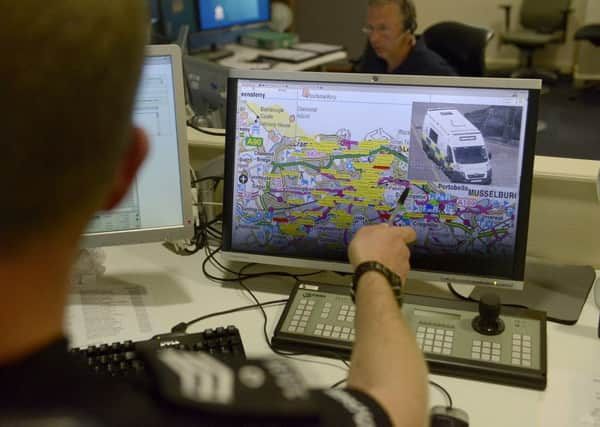Police call centre sickness absences at M9 crash levels


Latest figures show almost one in ten staff at the 999 centre in Midlothian were off ill at the start of February.
Poor staffing levels and a high sickness rate were highlighted as concerns at the time of the tragedy last summer.
Advertisement
Hide AdAdvertisement
Hide AdJohn Yuill, 28, was found dead inside the blue Renault Clio three days after the crash was first reported to police on Sunday, July 5.
His girlfriend, Lamara Bell, 25, was still alive but died in hospital days later from dehydration.
The call had been taken by a senior officer, but details were not then fed into the system.
Official figures from the Scottish Police Authority (SPA) showed the Bilston Glen call centre, which covers the crash area, had 15 staff – more than ten per cent – absent from work on June 11, less than a month before the tragedy.
Advertisement
Hide AdAdvertisement
Hide AdThe police later said sickness rates had fallen to 4.5 per cent, a more normal level for other workplaces. But latest SPA figures reveal that on February 2 absences were twice that level, with 13 staff – or 9.09 per cent – off sick.
Scottish Conservative justice spokeswoman Margaret Mitchell said: “The latest SPA board papers reveal that the absence rate is still worryingly high, despite the changes to call handling the Cabinet Secretary trumpeted last year.
“This situation needs to be closely monitored, especially in light of the senior management changes in Police Scotland over recent months.
“After the tragedy last July, no-one can afford to drop the ball.
Advertisement
Hide AdAdvertisement
Hide Ad“With the new chairman of the SPA and the new chief constable only recently taking up their roles, they understandably need time to bed in and fully assess the scale of the situation in the affected service centres.
“MSPs will have the opportunity to question them both during an evidence session on Thursday and call handling will be at the top of the agenda.”
Chief Superintendent Alan Speirs, who is in charge of the force’s call handling section, said: “Police Scotland has almost 23,000 people working for the service. In common with any other large organisation we recognise that sickness is one of the main factors in absence rates, especially during the winter months.
“Absence and the causes of it are closely monitored and managed to ensure attendance is maintained. We also have detailed resourcing plans in place to ensure service is not affected by sickness levels.
Advertisement
Hide AdAdvertisement
Hide Ad“Attendance is of paramount importance to Police Scotland and in order to ensure the best outcomes for our people there are a number of support mechanism for those employees who may suffer from any illness.”